Table of Contents
Call of Mecca The sacred city of Mecca holds a unique allure for Muslims worldwide. Each year, millions are drawn to its holy precincts, heeding the Call of Mecca to perform Umrah, the lesser pilgrimage. This spiritual journey, while not obligatory like Hajj, carries profound significance and offers an unparalleled opportunity for Muslims to seek closeness to Allah, seek forgiveness, and renew their faith. Understanding the intricacies of Umrah and its profound spiritual impact is essential for anyone embarking on this sacred quest.
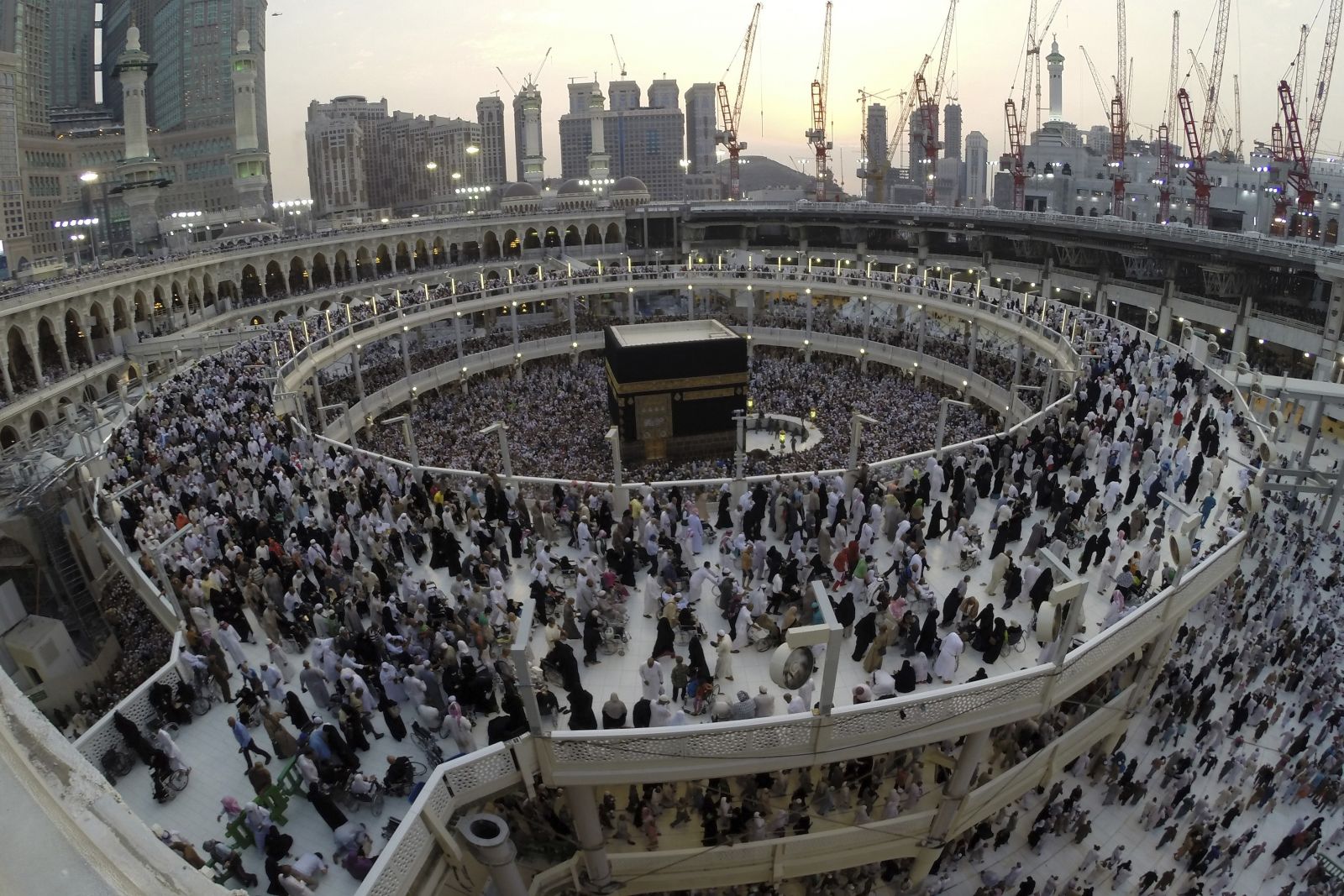
The Sacred Invitation
The Call of Mecca is more than just an invitation; it is a spiritual beckoning that resonates deeply within the hearts of the faithful. This call transcends geographical boundaries, bringing together Muslims from diverse backgrounds, united in their devotion and reverence for the Holy Kaaba. The journey to Mecca, the birthplace of Islam, is a pilgrimage that embodies unity, equality, and spiritual fulfillment.
The Pillars of Umrah
Umrah consists of four fundamental rituals: Ihram, Tawaf, Sa’i, and Halq or Taqsir. Each of these pillars carries profound symbolic meaning and is performed with deep reverence and devotion.
1. Ihram: The State of Purity
The first step in Umrah is entering the state of Ihram, a condition of spiritual purity and sanctity. Pilgrims don simple, white garments—two seamless cloths for men and modest attire for women. This attire symbolizes purity, humility, and the renunciation of worldly distinctions. Before assuming Ihram, pilgrims perform a ritual ablution and declare their intention (niyyah) to perform Umrah. This act of intention marks the beginning of the pilgrimage and sets the tone for the spiritual journey ahead.
2. Tawaf: Circumambulating the Kaaba
Central to the Umrah pilgrimage is Tawaf, the act of circumambulating the Kaaba seven times in a counterclockwise direction. Starting from the Black Stone (Hajar al-Aswad), pilgrims circle the sacred edifice while reciting prayers and supplications. This act of devotion signifies the unity of the Ummah (Muslim community) and the centrality of Allah in their lives. Tawaf is a profoundly moving experience, as pilgrims feel the spiritual energy of the millions who have performed this rite before them.
3. Sa’i: The Path of Perseverance
Following Tawaf, pilgrims perform Sa’i, which involves walking seven times between the hills of Safa and Marwah. This ritual commemorates Hagar’s desperate search for water for her son, Ishmael. It serves as a powerful reminder of her unwavering faith and perseverance in the face of adversity. As pilgrims traverse this path, they reflect on the importance of patience, resilience, and trust in Allah’s mercy. Sa’i is both a physical and spiritual journey, reinforcing the themes of endurance and faith.
4. Halq or Taqsir: A New Beginning
The final rite of Umrah is Halq (shaving the head) or Taqsir (trimming the hair). For men, shaving the head symbolizes humility and a fresh start, while women typically cut a small portion of their hair. This act signifies the completion of the pilgrimage and the pilgrim’s readiness for a new beginning, free from past sins and impurities. It is a moment of spiritual renewal and purification.
The Spiritual Significance of Umrah
Umrah is a profound expression of faith and devotion. It provides an opportunity for Muslims to detach from worldly distractions and focus solely on their relationship with Allah. The pilgrimage serves as a time for introspection, repentance, and spiritual growth. It is a chance to seek forgiveness for past transgressions and make a fresh start with a purified soul.
Preparing for the Journey
Preparation is key to a successful Umrah pilgrimage. Pilgrims should begin by obtaining the necessary travel documents, including a valid passport and visa. Consulting with an experienced travel agent who specializes in Hajj and Umrah arrangements can help streamline the process. Additionally, acquiring comprehensive travel insurance is advisable to cover any unforeseen circumstances.
Spiritual and Physical Readiness
Spiritual preparation is paramount for pilgrims. Engaging in regular prayers, reciting the Quran, and seeking forgiveness for past sins help cultivate a pious mindset. Physical preparation is equally important, as Umrah involves considerable walking and physical exertion. Pilgrims should maintain good health, exercise regularly, and stay hydrated to ensure they can perform the rituals with ease.
The Journey to Mecca
The journey to Mecca is an integral part of the Umrah experience. Pilgrims typically travel by air, arriving at King Abdulaziz International Airport in Jeddah. From there, they proceed to Mecca by bus or car. Upon arrival in the holy city, pilgrims should take a moment to absorb the spiritual atmosphere and prepare themselves for the sacred rituals ahead.
Etiquette and Conduct During Umrah
Adhering to proper etiquette and conduct during Umrah is essential to maintain the sanctity of the pilgrimage. Pilgrims should exhibit patience, humility, and respect toward fellow worshippers. Avoiding unnecessary distractions and focusing on the spiritual significance of the rituals enhances the overall experience. It is also crucial to adhere to local customs and regulations to ensure a harmonious and respectful pilgrimage.
Navigating Common Challenges
While Umrah is a deeply rewarding experience, pilgrims may encounter certain challenges. Understanding and anticipating these challenges can help ensure a smoother journey.
Crowds and Congestion
Mecca attracts millions of pilgrims annually, leading to crowded conditions, especially during peak times. Pilgrims should remain patient and avoid rushing through the rituals. It is advisable to perform Tawaf and Sa’i during less busy periods to minimize congestion.
Health and Safety
Maintaining good health is crucial during Umrah. Pilgrims should carry essential medications, stay hydrated, and avoid excessive physical exertion. Wearing comfortable footwear and taking regular breaks can prevent fatigue and injuries. It is also important to be aware of the nearest medical facilities in case of emergencies.
Language Barriers
For non-Arabic-speaking pilgrims, language barriers can pose challenges. Learning basic Arabic phrases and carrying a translation guide can facilitate communication. Many guides and volunteers in Mecca are multilingual and can assist with directions and information.
Enhancing the Spiritual Experience
To enhance the spiritual experience of Umrah, pilgrims can engage in additional acts of worship and reflection. Spending time in prayer and meditation at the Masjid al-Haram, the Grand Mosque, allows pilgrims to deepen their connection with Allah. Reciting the Quran, offering voluntary prayers (Nafl), and seeking forgiveness further enrich the spiritual journey.
Reflection and Gratitude
Upon completing Umrah, pilgrims should take time to reflect on their experience and express gratitude to Allah. The pilgrimage is a profound opportunity for self-improvement and spiritual growth. Sharing the experience with family and friends, and encouraging others to undertake Umrah, can inspire a collective sense of faith and devotion within the community.
The Broader Impact of Umrah
Beyond its individual spiritual benefits, Umrah has a broader impact on the Muslim community and the world. It fosters a sense of unity and solidarity among Muslims, as people from different cultures and backgrounds come together in worship. The pilgrimage also promotes values of humility, patience, and perseverance, which pilgrims carry back to their daily lives, positively influencing their communities.
The Future of Umrah
As the global Muslim population continues to grow, the significance of Umrah will only increase. Advances in travel and technology will make the pilgrimage more accessible to a wider audience. However, the core essence of Umrah—its spiritual and transformative power—will remain unchanged. The Call of Mecca will continue to resonate with millions, inspiring them to undertake this sacred journey in search of spiritual fulfillment and divine closeness.
Call of Mecca
The Call of Mecca is a powerful and enduring summons that invites Muslims to embark on the sacred journey of Umrah. This pilgrimage, though not obligatory, holds immense spiritual significance and offers an unparalleled opportunity for renewal and purification. By understanding the rituals and preparing both spiritually and physically, pilgrims can navigate the journey with ease and reap its profound spiritual benefits. The experience of Umrah fosters a deep connection with Allah, reinforces the values of faith and devotion, and unites the global Muslim community in a shared expression of worship. As Muslims continue to heed the Call of Mecca, the legacy of Umrah will endure, enriching the spiritual lives of countless believers for generations to come.

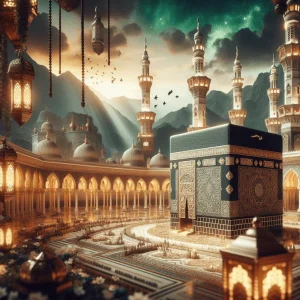
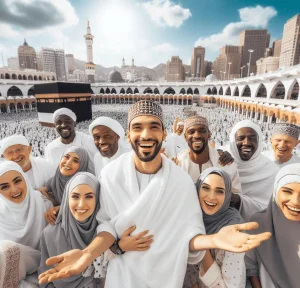
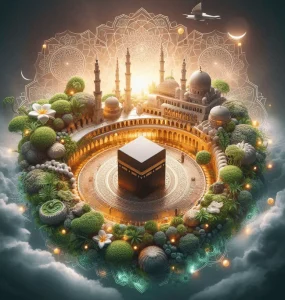
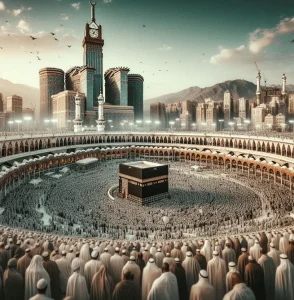
More Stories
Experience the Incredible Serenity of Worship by Following Key Umrah Rules
Experience the Powerful Serenity of a Memorable Trip to Umrah
The Essential Guide to Umrah Visa Fee from USA Made Easy